Can we collectively experiment with different forms of social structure through play?
Exhibited at: STRP Festival 2024, Jeudg Film Festival 2025
Awards: ACT Award 2024 Winner, Finalists’ Award for Asia Digital Art Award Fukuoka 2024 (ADAA) Interactive Arts Category
Democracy today is fragile. Throughout the world, its principles are being challenged – by politicians, by corporations and by ordinary citizens. In the context of the climate emergency and widespread social unrest the question of how we’re going to make collective decisions is urgent.
We all want change, but how do we reconcile different desires for the future? Taking action implies responsibility and agency. The balance between individual and collective goals is delicate. When the equilibrium tilts from one to the other, to what extent do we choose to participate in democratic systems we don’t agree with, and can they still survive if we hold different values?
More importantly, can the very principles of democracy lead to the collapse of the democratic system, or even to a better paradigm?
PLAYING DEMOCRACY 2.0 is a large-scale giant multiplayer game of Pong exploring the principles of democracy. Players rewrite the rules of the game, exploring democracy and its potential collapse.
Designed as an interactive installation for up to 4 players of all ages, players control the game paddles using their body movements tracked by 3D camera technology. The work is a larger and complex version of the original Playing Democracy first exhibited in Barbican.
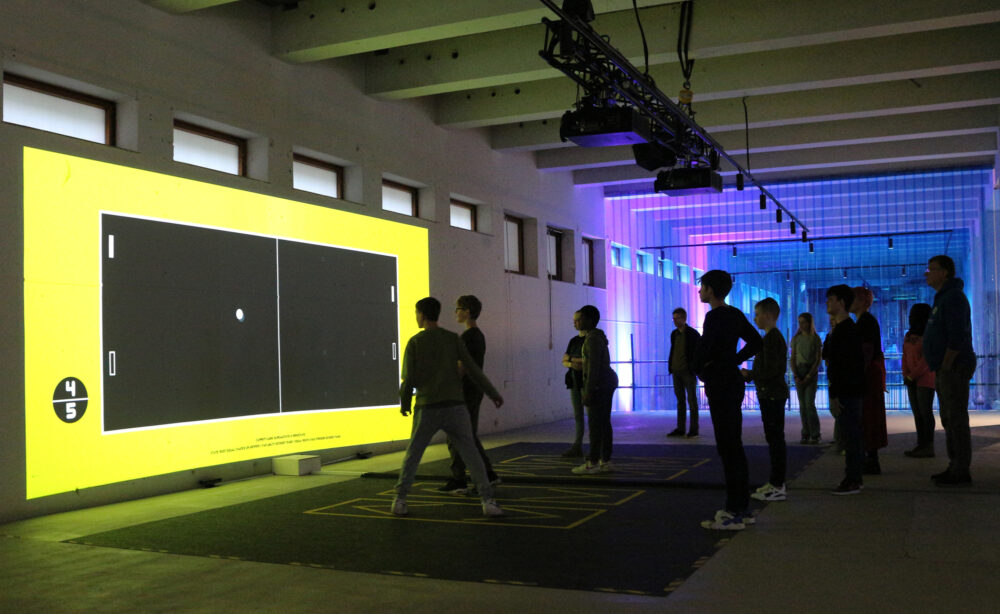
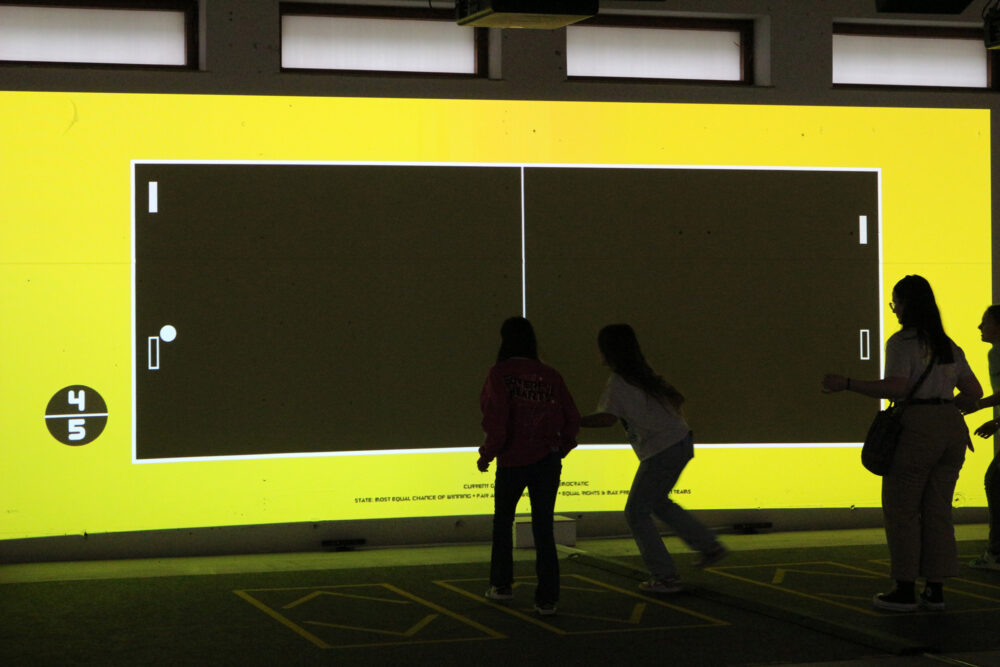
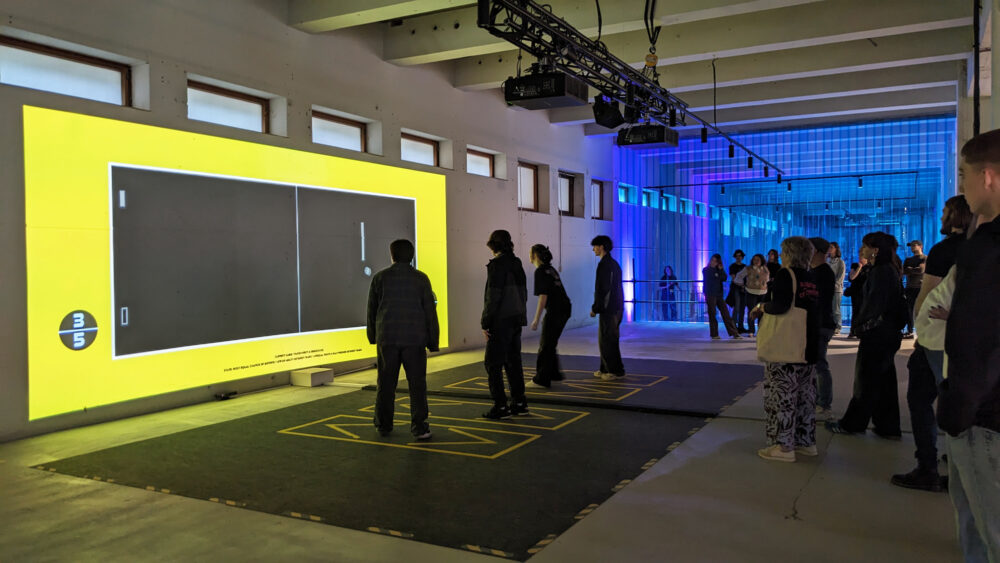
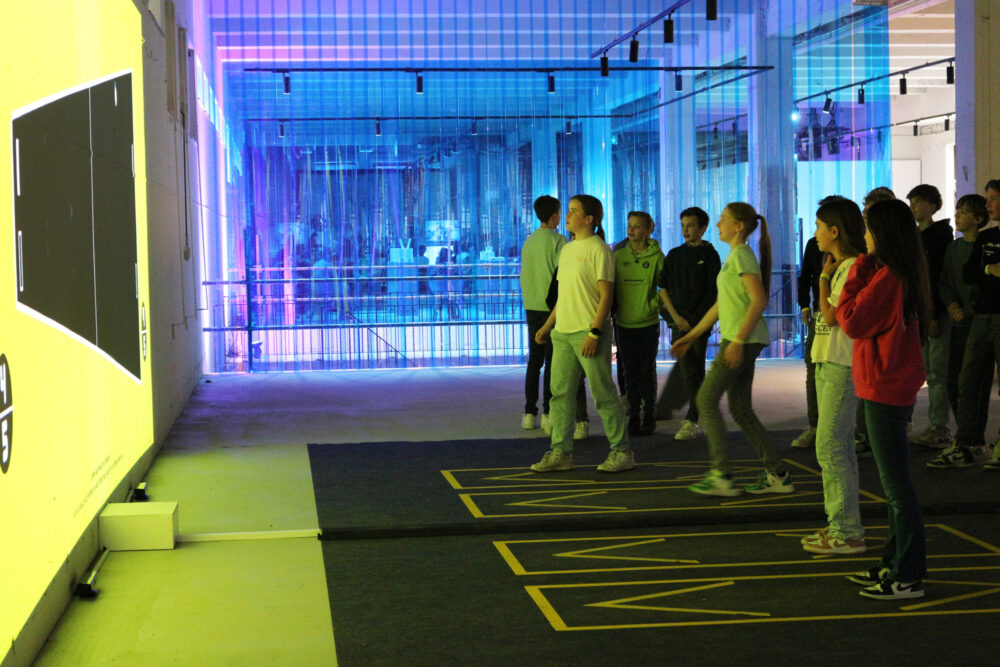
Each time a team scores a point, they can choose to change one of six game rules. The rules are simple and are also, in essence, the principles of democracy, such as fairness, equality, freedom, rights, transparency and accountability.
The rules affect paddle size, position, size of playing field and how many can participate, directly affecting the game environment and player dynamics. Players can choose to cooperate with each other, they can modify the rules individually and collectively or violate them, which could cause the game to fall apart.

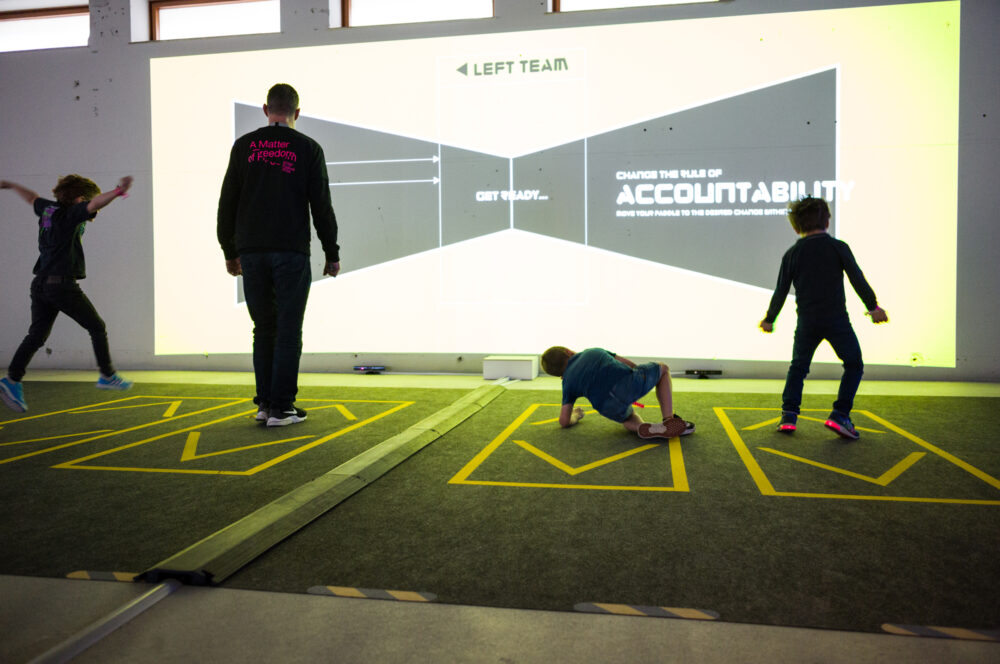
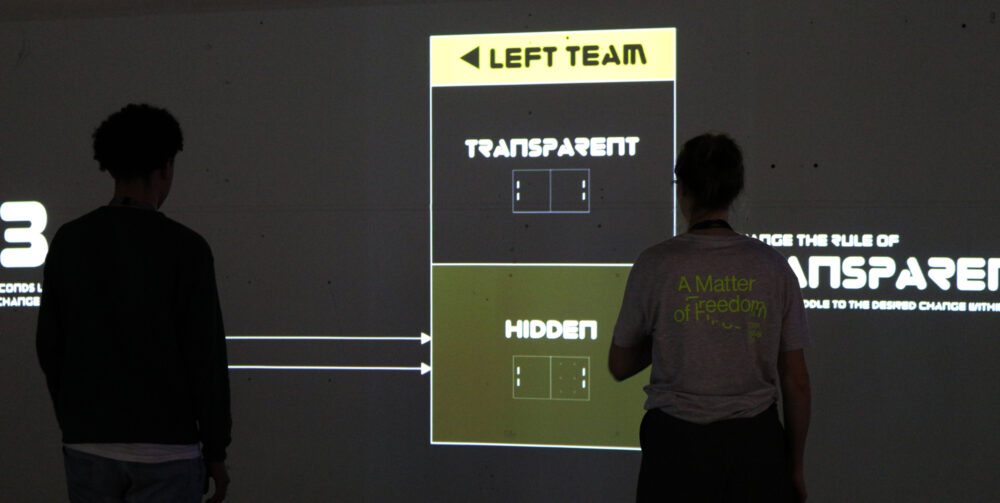
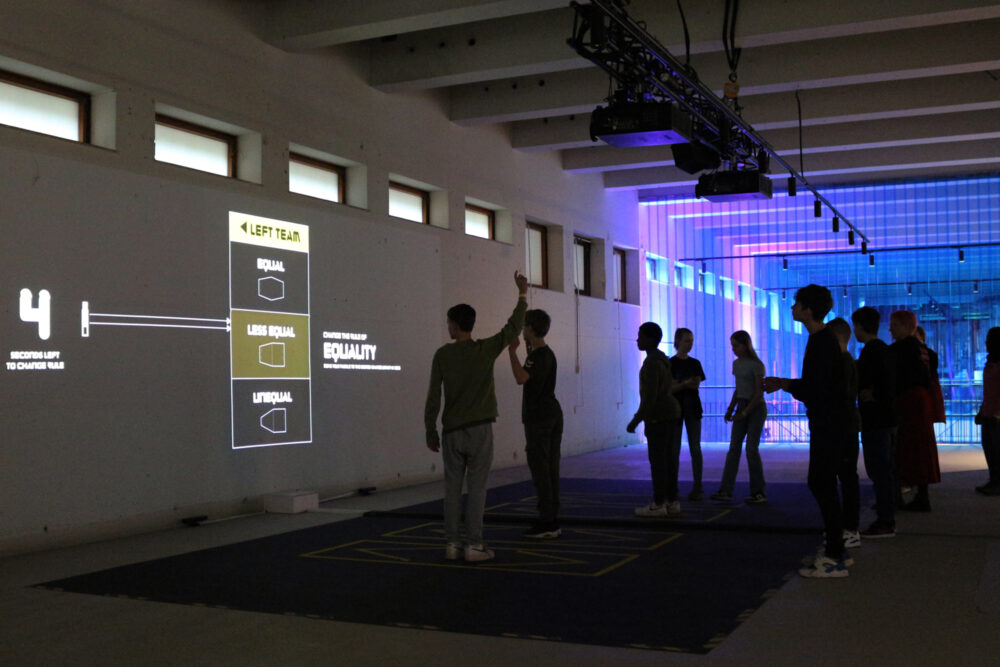
As the game is played, with varying rules and democracy parameters, the national anthem of a country with a related political situation can be heard, reflecting the current game’s supposed democratic state. The data is drawn from the IDEA’s Global State of Democracy Report 2023. At the end of each game, the game boards and rulesets for the last 9 games are displayed, along with each one’s democratic index.

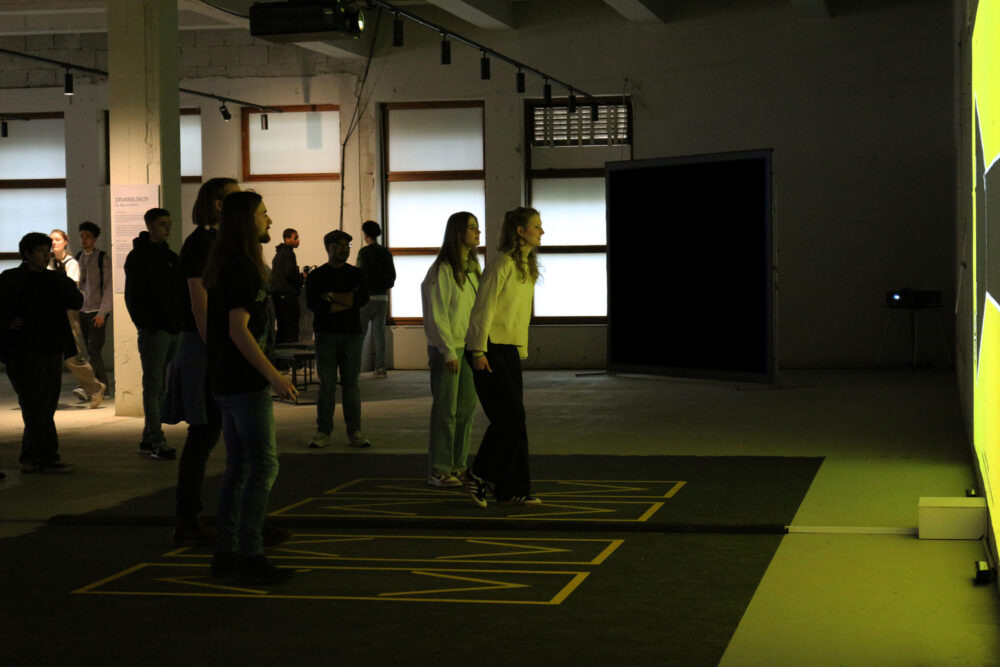
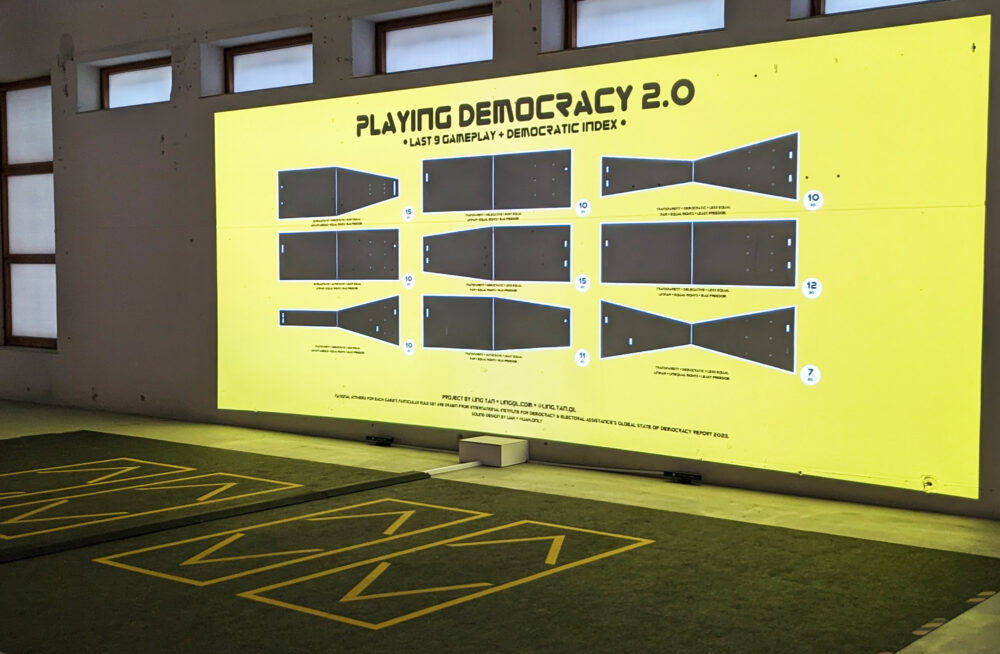
Playing Democracy 2.0 encourages people to question their understanding of the values and beliefs we live in and how we shape our social structure through social play. It brings into question ideas around social structures, our collective responsibility and agency in participating, the implications of consensus and our interactions with each other.

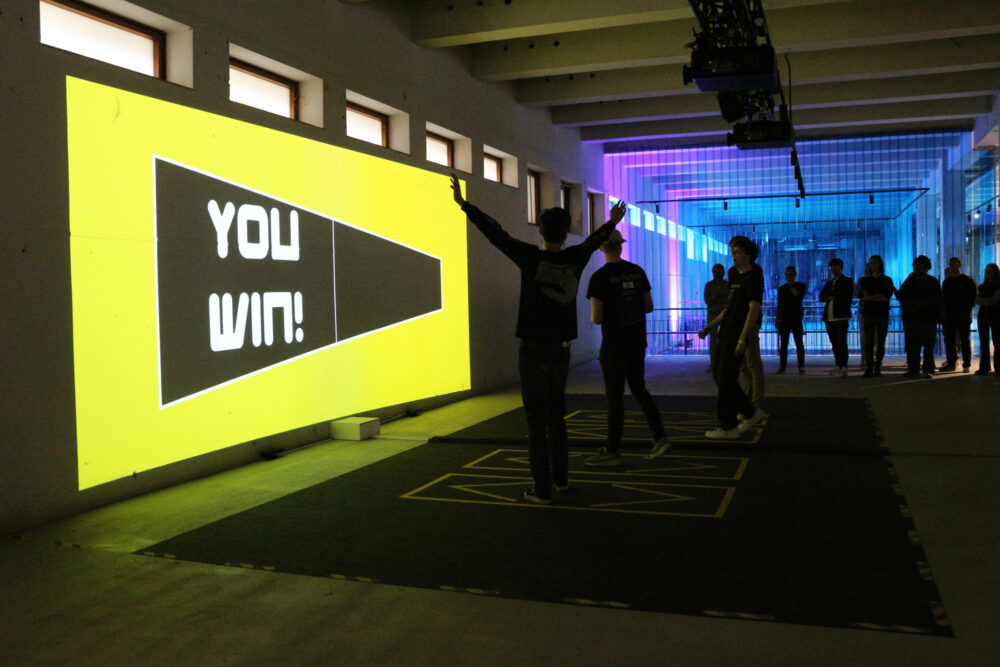
Sound design by uah.
Originally commissioned by Barbican and Lumen Arts Projects. Supported by ACT Award STRP Festival 2024.
Special thanks to Now Play This, New Technological Art Award (NTAA) and Asia Digital Art Award FUKUOKA (ADAA).
